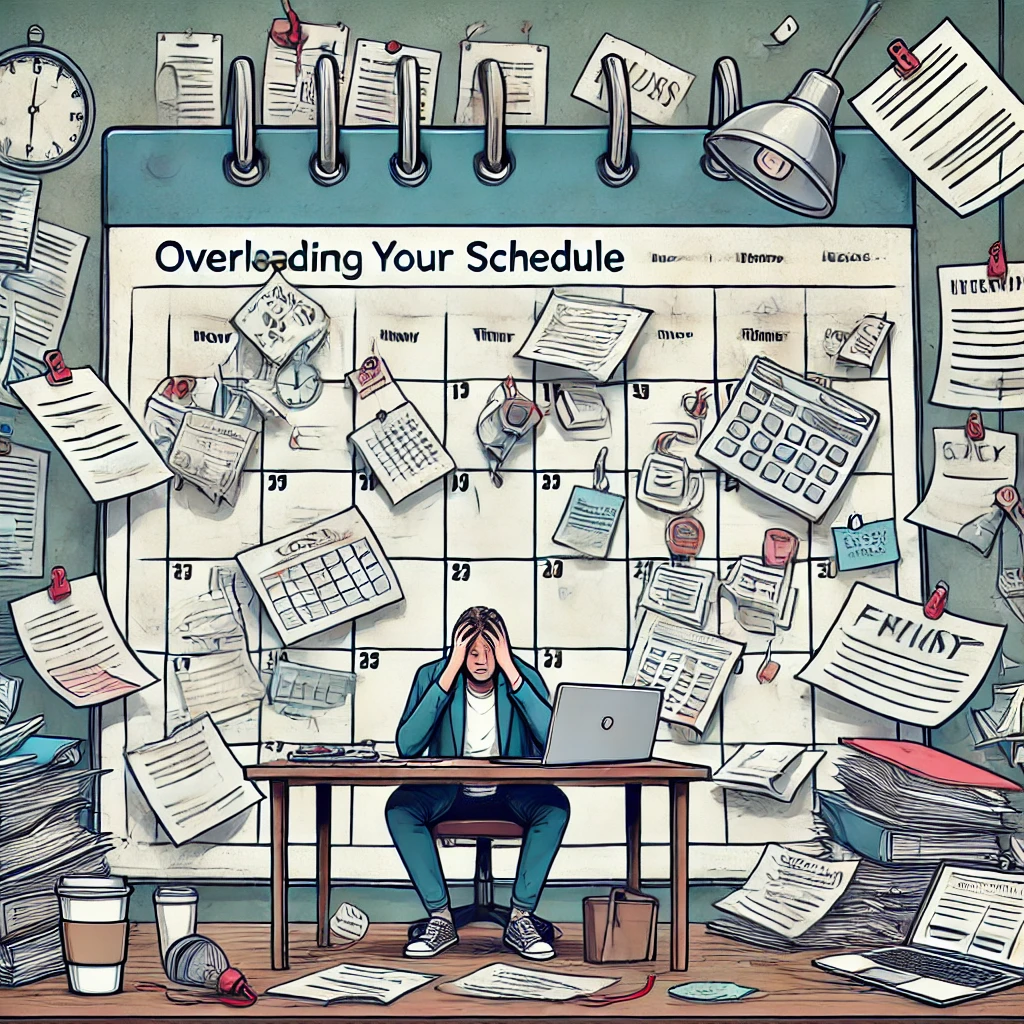It’s key to have good financial planning for your future and to stay stable. But many make mistakes in their monthly plans. A good plan needs clear goals and review to fit new situations.
One big part of smart planning is handling your money well. Make a budget to stop spending too much. Start saving early and keep up with investing. More than half the people forget to plan for retirement, missing out on benefits like compounding interest. Think ahead, since planning becomes even more important as you near retirement.
Dealing with investments can get tricky. Not checking your portfolio yearly or not understanding fees can hurt your money growth. Some funds charge too much, eating into your earnings. For example, $300 could go to fees for a $10,000 investment in a fund with a 3.00% cost.
Planning for taxes is also vital. Taxes in retirement can be a big cost. With tax rates going up, using ROTH plans can help save on taxes. Moving old retirement accounts together can make things easier and help you make better choices.
Don’t skip documenting your financial plans and wishes. This makes sure your money is handled correctly if something unexpected happens. Social Security is key for those with little savings. And tracking important numbers protects you from wrong financial info.

Failing to Track Your Expenses
Not keeping an eye on your expenses is a big mistake. It can mess up your finances and show hidden problems. Keeping track helps make your financial reports right. Also, it helps find chances to save on taxes and money.

Importance of Expense Tracking
It’s key to watch what you spend. This is important for a good budget and saving money over time. If you mix business and personal costs, it could be hard at tax time. Forgetting about small expenses can also make you miss chances to save. Most people who don’t keep a close eye on their money have trouble sticking to their budget. Setting unrealistic budget goals can cause financial problems later. Writing down your budget and always tracking spending helps avoid spending too much. This is an issue for about 64% of folks each month.
Tools and Systems for Tracking
Many tools and software make tracking your money easier. Schwab Moneywise® is a good tool to start with. These digital helpers can sort your expenses making it easy to keep records. They also keep digital copies, so you don’t lose your proof of purchases. SignatureFD says they’re important for good money management, especially if you have a lot to track, like they do for their clients. Features that work automatically in budget tools can keep your budget on track. They stop about 78% of people from paying late fees. Using these tools makes sure your money records are right. This helps plan for your financial future and keep track of your savings.
Neglecting to Set Clear Goals
Many people miss out on setting clear financial goals. Around 80% of folks don’t establish such aims. This is especially true for those not in the business world. They often overlook the power of goal-setting.
About 70% of the 20% who do set goals still come up short. They often aim for objectives that should be easy to reach. See, there are two types of goals. One is what you want to be and the other is what you want to do. These goals fall under wealth, health, relationships, and finding personal happiness. Striking a balance among these areas is vital for success. Especially for those in business. They lean towards wealth and relationship goals.
Fear of succeeding or failing holds many back. Plus, a lot of folks simply don’t know how to set goals effectively. Just setting goals is not enough. It’s what comes next that counts. Too much worrying and second-guessing can stop you in your tracks. This is what we call analysis paralysis.

Having too many goals at once can backfire. It makes progress hard and leads to frustration. Not believing you deserve success might make you ruin your own chances. Also, lacking the drive to make any real changes keeps people from reaching their financial targets.
Setting clear financial goals is key. It’s the cornerstone of a solid plan for your money. Goals light the way to what you want and help measure success. They give you a clear roadmap for your financial decisions. Setting and hitting these goals is crucial for success. It helps both people and companies to prosper.
Overestimating Your Available Time
Thinking you have more time than you do can lead to bad planning and missed goals. This happens when we think we can finish tasks faster than we actually can. In a 1994 study, students thought their big assignments would take about 34 days. They actually needed about 55 days on average to finish. Only a third finished on time. This happens a lot, like when Canadians send in their taxes late or when big projects run over budget and schedule.
Getting the timing wrong often means we rush through work, make mistakes, and don’t meet deadlines. This messes up our time management and how we try to be productive. A study in 2005 shows that being too optimistic about finishing things on time messes us up even more. So, it’s crucial that we learn to plan more realistically.
Time Blocking Techniques
Time blocking helps with managing time wisely and boosts productivity. It’s about splitting your day into blocks for specific tasks. This way, you can focus better without getting sidetracked. It lets you plan your day better and get a more accurate sense of timing.
Breaking tasks into smaller parts helps you manage your time better. Also, using the Pomodoro Technique can make you more productive. It’s all about working hard for a short time, then taking a break. Using these methods in your planning can help you avoid the planning fallacy. As a result, you can achieve better results overall.
Lack of Flexibility in Your Plan
Having a strict financial plan can cause big issues when things change unexpectedly. It’s important to be able to change your plan. This way, your financial strategy stays strong and can still reach your goals. Being adaptable is key.

Building Contingencies
Adding backup plans is vital for dealing with surprises. Without them, it’s hard to plan well and use resources wisely. Having these safety nets in place means less trouble and wasted money. So, your money and projects can keep moving ahead smoothly.
Adapting to Change
Quickly adjusting to changes keeps your financial strategy strong. It helps with teamwork and making choices faster. This is really good for managing more than one project at a time. Thinking ahead and talking with everyone can avoid problems. It also helps your plan change for the better over time, as things around you do.
Failing to Review and Adjust Plans Regularly
Checking your financial review is crucial. It helps you keep on track with your goals. Regular looks can show where you need to make changes because of life events or market shifts.
Many leaders spend very little time looking at their plans each month. This and many Americans not having enough insurance can cause big money problems. Often, people find they don’t have enough life insurance anymore. Catching these issues early lets us fix our plans quickly.
Being able to change to fit new conditions is important in money matters. A regular financial review can show us when we need to tweak our aims. Things like different tax rates or new rules on what’s taxed when we pass away need quick changes. Also, checking how we value our property can keep taxes lower.
Keep good records for taxes and when planning for your family’s future. Keep documents up to date with regular checks. Giving money gifts can help loved ones with school or health costs. But, if you don’t look at your plan often, you can miss these chances.
It’s key to revise your financial goals from time to time. This helps with changes in your life, or in things like insurance needs or tax plans. Being proactive is the secret to good long-term financial health. This way, you work towards your goals and prepare well for what’s ahead.
Poor Financial Planning
Bad money plans can really hurt your wallet. Around 35% of adults say they’re doing worse money-wise than a year ago (Federal Reserve’s 2022 Survey of Household Economics and Decisionmaking). This shows how big of a deal it is to mess up your budget. Problems with saving for the future and making smart investments can completely wreck your plans.
Forgetting to keep an eye on where your money goes is a big mistake. Look at this: the average credit card interest rate in June 2024 was 24.62% (Investopedia). It’s crucial to slash that debt as soon as you can. Also, not saving up early can hurt you because of something called compound interest. It just means your money can grow more when you give it time.
Not saving money for rough times can be really bad. It’s advised to put away 3 to 6 months of cash for emergencies. When it comes to spending on housing and paying off debts, stick to the 28/36 rule to keep things under control.

Getting ready for retirement is also something many people fall short on. In April 2024, the U.S. saving rate was just 3.6%. Many won’t have enough money put away for their later years. Starting to save money early and wisely is key to avoid falling into this trap.
For your money plans, regular check-ups are crucial. People like Suze Orman, Jim Cramer, and Dave Ramsey say don’t set your plans in stone. Always be ready to change them as needed. And, getting help with complex estates and financial plans is smart. Each family’s money situation is different. Overestimating or not knowing your spending can cost you a lot over time.
Avoid bad investments by always fine-tuning your financial plans. Making smart choices early can mean a secure financial future. If you want more advice on dodging budgeting traps and common money mistakes, check out this in-depth article.
Not Prioritizing Tasks Effectively
Ineffective task prioritization wastes time and resources. It affects how much we get done and how we feel about our work. A culture of urgency causes stress. It makes us tackle the urgent stuff instead of the important tasks. This leads to spending too much time on messages and calls, rather than key projects.
Bad communication in teams is a big reason for this. Tasks might not get sorted right because people don’t talk clearly about what’s important. Thus, workloads grow and push us to work late. A better way to share information can lower the stress and allow better work and life balance.
Using the Eisenhower Matrix
The Eisenhower Matrix helps us decide what tasks to focus on first. It puts tasks into categories, like urgent and important, to guide our choices. Using this tool well can make a team much more effective.
It’s easy to get distracted by big tasks or emails early in the day. But, we should pick tasks based on their real impact. To stay healthy and finish work on time, focus on a few key tasks each day and week. This helps manage stress and work better.
Good talks about goals can make a team more sure about reaching them. A good look at how we communicate can also help everyone get on the same page. This way, we can work smarter, not harder.
Overloading Your Schedule
Overloading your schedule makes it hard to keep a good work-life balance. In the U.S., adults work around 47 hours a week. Nearly four out of ten work over 50 hours. This leads to a lot of stress. It’s key to set realistic limits and understand the value of a balanced schedule.

Setting Realistic Limits
Knowing how much you can handle is vital to beat stress. More than half of people face a lot of stress at work. This leads to a risk of burnout. Not planning properly, and trying to do everything at once, leads to mistakes.
Our minds can focus clearly for only 90 minutes without a break. So, it’s smart to take breaks and plan your work well. This makes you more productive and improves your work quality.
Knowing When to Say No
Sometimes, saying no is crucial for a balanced life. Over 40% of workers do too much because of work demands. Almost 20% work extra hours every day. This can harm your mental health, lead to more anxiety, and lower your job performance.
Clearly understanding your goals and setting boundaries is essential. Saying no to extra work helps keep your workload realistic. It lets you manage your work and personal life better.
Ignoring Self-Care and Breaks
In the rush of making monthly plans, we often forget about self-care and breaks. But, these are really important for our health. Not doing self-care can cause stress, make us tired, and hard to focus.
If you don’t rest, you might make bad decisions, work slower, and feel burnout. It is crucial to take your mental health seriously by taking breaks. This helps you work better and stay healthy.
Doing self-care things like having 7-9 hours of sleep, moving your body, and eating well is very important for your mind and body. Setting limits, taking time to relax, and talking to people you trust also help a lot. They make you feel happy and fulfilled.
Skipping self-care and breaks can harm your personal relationships. For instance, with family members. You might also get physical pains like headaches from too much stress. So, taking care of yourself is key to doing well in your job and enjoying life.
In the end, knowing that self-care and breaks are crucial can stop you from getting burnt out. It supports both your personal and work life. This way, taking care of your mental health leads to success in all parts of life.
Planning Mistakes: Common Pitfalls and How to Overcome Them
Strategic planning is key but can have pitfalls. Overcoming procrastination is crucial. Often, teams lack diversity, making their plans less effective. Also, rushing into tactics before setting a clear path spreads resources thin. This leads to not focusing on important goals.

Avoiding Procrastination
Procrastination is a big issue that can mess up plans. To beat it, set real deadlines and break big goals into small tasks. It’s easy to fail with too-big goals or only looking inside the team. A step-by-step plan lets you check and tweak things. This keeps goals reachable and in line with what’s important.
Maintaining Work-Life Balance
Getting work-life balance right is very important when planning. It’s key to set boundaries and manage time well between work and life. Plans ignoring this struggle with team commitment and fail more. A balanced plan makes work better, boosts responsibility, and helps plans succeed.
Conclusion
In conclusion, to stay away from common monthly planning mistakes, focus on smart financial planning. Keep reviewing and adjusting your plans. Prioritize your tasks well. Find a balance between work and personal life.
Many people forget to track their spending and set clear goals. This can waste resources and time. So, it’s best to make careful choices. Don’t just act quickly, as many “Jumpers” often do. By doing this, you will avoid mistakes and improve your planning skills.
It’s very important to be flexible with your plans. Using old budgets or sudden marketing changes can slow your growth. Also, they might make you miss good chances. Instead, manage your money actively. Keep adjusting your plans. This will help you use your resources wisely and reach financial stability.
Be careful when planning with others. This keeps your strategy clear and united. Finally, to win at planning, you need to be thoughtful. Use tools like the Eisenhower Matrix to organize your time. This will prevent you from getting overwhelmed. Also, it will give you time for yourself and breaks.
Strategic financial planning is more than just numbers. It’s about creating a life where you grow in every way. By following these ideas, you can avoid mistakes. Plus, you will steadily move towards a better and richer future.
FAQ
Why is it essential to track your expenses regularly?
Tracking expenses helps understand spending patterns. It can show where to cut costs. This supports living within your means.
It’s a key step in strong financial planning and budgeting.
What tools are available for tracking expenses?
Many tools help monitor spending. Schwab Moneywise®, Mint, and YNAB (You Need a Budget) are some. They assist in managing expenses and savings.
What are the consequences of not setting clear financial goals?
If goals aren’t clear, planning is hard. It becomes tough to track progress and stay motivated. Achieving milestones may also be a challenge.
How can overestimating available time impact financial planning?
Overestimating time leads to inefficient planning. Objectives might not be met, and deadlines could be missed. Techniques like time blocking help in planning better.
Why is flexibility important in a financial plan?
Flexibility allows for dealing with unexpected changes. With contingencies, you can face life’s uncertainties. This makes your financial plan more resilient.
How often should you review and adjust your financial plans?
It’s crucial to review your plans yearly. This helps check progress and respond to personal and market changes. It keeps your strategies up to date.
What are some common mistakes in financial planning?
Some mistakes are not tracking expenses well and not planning for retirement. Overlooking tax implications is also a problem. These errors may lead to running out of money in retirement.
They can also cause you to miss out on saving opportunities.
What is the Eisenhower Matrix, and how can it help prioritize tasks?
The Eisenhower Matrix sorts tasks by their urgency and importance. It helps focus on critical activities that align with your goals. It boosts productivity through better prioritization.
How can overloading your schedule affect your financial planning?
Too much to do can cause burnout and reduce productivity. This can lead to poor financial choices. Setting limits and learning to say no help keep a healthy balance.
Why is self-care important in financial planning?
Self-care is essential for productivity and mental well-being. It helps prevent burnout and supports overall success and happiness.
What strategies can help overcome common planning pitfalls like procrastination?
Setting deadlines and breaking tasks into smaller steps help tackle procrastination. Maintaining work-life balance with smart time management also prevents it. This supports effective financial planning.

More Posts
11 Essential Elements of a Successful Partnership Meeting
A successful partnership meeting is a key strategic tool that enhances collaboration, drives decision-making, and reinforces shared objectives. In today's fast-paced professional environment, Zippia research indicates that an average worker spends 31 hours...
How to Handle Repetitive Tasks - 8 Tips
Research shows a lot of us spend 20% of our work week on boring tasks. This can hurt our productivity, morale, and stress levels. It’s important to manage tasks well to be efficient...
A Comprehensive Guide to Bullet Journal for Productivity
The Bullet Journal was created by Ryder Carroll. It is a system that merges mindfulness and productivity. Carroll made it to handle his ADHD. Now, it helps people manage tasks, track goals, and reflect...
12 Tips to Have a Productive Weekly Team Meeting
Weekly team meetings play a major role in team communication, alignment, and momentum. When the entire team gathers—whether in in-person meetings, hybrid check-ins, or virtual meetings through tools like Microsoft Teams—it’s an opportunity...